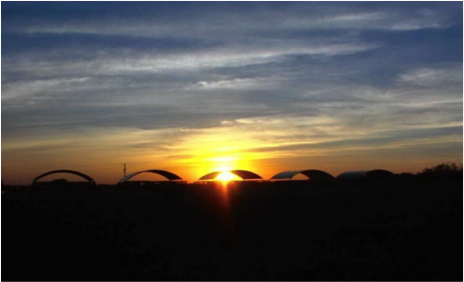TRIAL ENDS IN FAVOR OF HENDRY COUNTY PAVING THE WAY FOR PRIMATE BREEDING FACILITIES
By Thomas J. Rowell
 On July, 8th, 2016, Circuit Court Judge James D. Sloan released his ruling that there was no violation of the Florida Sunshine Law and found for the defendant, Hendry County, in an action lawsuit, which was filed in November of 2013 and amended in May of 2015. Neighbors of a newly proposed facility on the Lee County border brought a lawsuit against the county alleging that because it never held hearings or told them about a primate facility being built in their neighborhood the county violated Florida’s Sunshine Law.
On July, 8th, 2016, Circuit Court Judge James D. Sloan released his ruling that there was no violation of the Florida Sunshine Law and found for the defendant, Hendry County, in an action lawsuit, which was filed in November of 2013 and amended in May of 2015. Neighbors of a newly proposed facility on the Lee County border brought a lawsuit against the county alleging that because it never held hearings or told them about a primate facility being built in their neighborhood the county violated Florida’s Sunshine Law.
In November of 2013, the Animal Legal Defense Fund (ALDF), on behalf of three Hendry County residents filed a lawsuit against Hendry County alleging Hendry County violated Florida Statutes 286.011(1) commonly referred to as the Florida Sunshine Law. In their complaint they stated that a new nonhuman primate facility, which is proposed to be located in the northeast section of the County would “confine, quarantine, and breed thousands of wild and imported non-human primates (macaques) in a rural residential neighborhood”. They further stated that “unlike domestic livestock, non-human primates are known carriers of a wide array of serious infectious diseases such as Ebola, Herpes B, tuberculosis, and parasites that may be transmitted to humans” in their complaint. They sought to declare that Hendry County’s approval of the new facilities was void because it was not considered at a public hearing after adequate public notice, to have the courts issue an injunction mandating Hendry County to rescind its approval of the new facility permits, and to issue an injunction prohibiting Hendry County from approving future wild nonhuman primate facilities in general agriculture zoning without first conducting a public hearing.
In May of 2015, the lawsuit was expanded to include a second company which entered into a contract with Primate Products Inc. (PPI) and resides on property owned by Panther Tracks LLC, which is also home for the PPI operation that has been in business for over 15 years at that location. None of the three residents for which the suit had been filed on behalf of lived in close proximity of Panther Tracks (they were over 30 miles away in the far northeast section of the county) and one of the three residents had only purchased property in July of 2013, after building permits had been issued for the expansion at Panther Tracks LLC.
Judge Sloan considered the following two points in his ruling:
- Did actions taken by Hendry County violate the Florida Sunshine Law?
- If not, had Hendry County violated the purpose and intent of the Sunshine Law by assigning or abdicating policy making function to staff?
In his legal reasoning he stated that no county commissioner, either alone or in tandem with any other commissioner attended any meetings, consulted or communicated with each other, or with either the new facility or Panther Tracks during any portion of the process approving either site development plans; therefore, nobody had engaged in a policy-making function, which may have required public meetings.
In the ruling both parties had to concede that there was no definition for “animal husbandry” specifically set forth in Hendry County’s Comprehensive Land Use Plan nor in its Zoning Code; however, given the historical application as it was applied to other site development plans of a similar nature such intent could be concluded. In addition, it was presented as evidence that in April of 2000 raising of monkeys was specifically authorized in writing in agriculture 2 zones by the late Eason Burchard, the Director of Hendry County Building and Zoning. As noted in the ruling and presented as testimony in the trial, Hendry County has in the past permitted buffalo, turtles, alligators, tilapia and ostriches in agriculture zones.
Primate Products Inc. is pleased with Judge Sloan’s ruling and is appreciative of the work performed by Hendry County staff. Although PPI has encountered no problems in over 15 years with property owners who live and work adjacent to their site, the conflict between residential developments located within agricultural zones is not new. When an animal operation is in close proximity to residential development, complaints and problems can occur. We reiterate that there is no better place to find the knowledge of support agencies, mindset of workers, and community understanding of farming and livestock production and maintenance than in Hendry County Florida. They have demonstrated once again that they stand by the agricultural life style and the rights provided to property owners as stated in their comprehensive plan and land development code.
